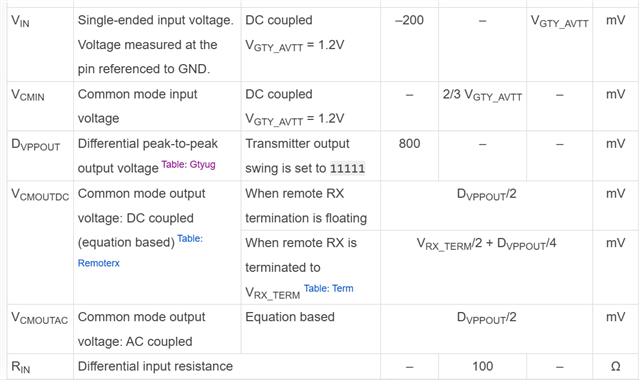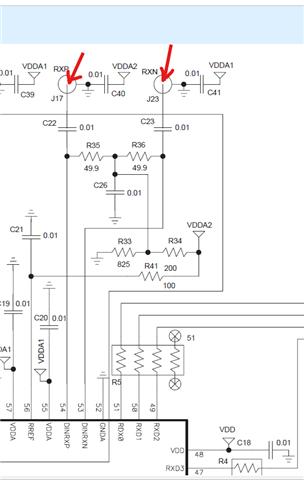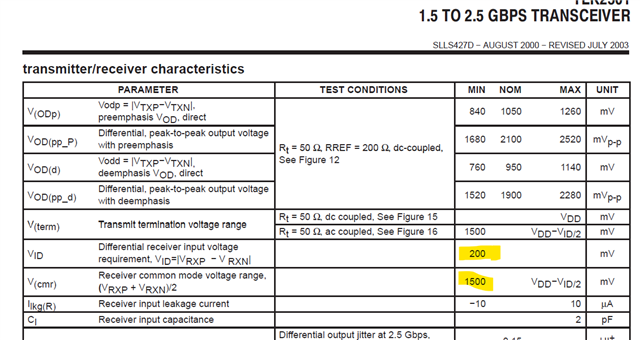Part Number: TLK2501EVM
Other Parts Discussed in Thread: TLK2501
Tool/software:
Hi Team,
I'm connecting TLK2501EVM to and FPGA with the following DC and AC characteristics:
In the picture above the relevant info is DVPPOUT (800mV) and the common mode output (DVPPOUT/2 = 400mV)
The TX of the FPGA above is connected to the RX of the TLK2501EVM (RXP and RXN --> DINRXP and DINRXN)
Which according to the datasheet:
Seems to be ok when considering that the Tx is 800mV diff and the RX here is minimum 200mV diff.
When looking on the common mode I'm a little bit confused, in the EVM there is AC coupling and then termination to VADD2 as seen in the second attached picture, I suppose it is adding DC level of 1.5V as recommended in the datasheet of TLK2501 but not too sure.
Please advise if any you see any violation or fault here.
If additional information is needed please let me know.
Thanks,
Moral.

